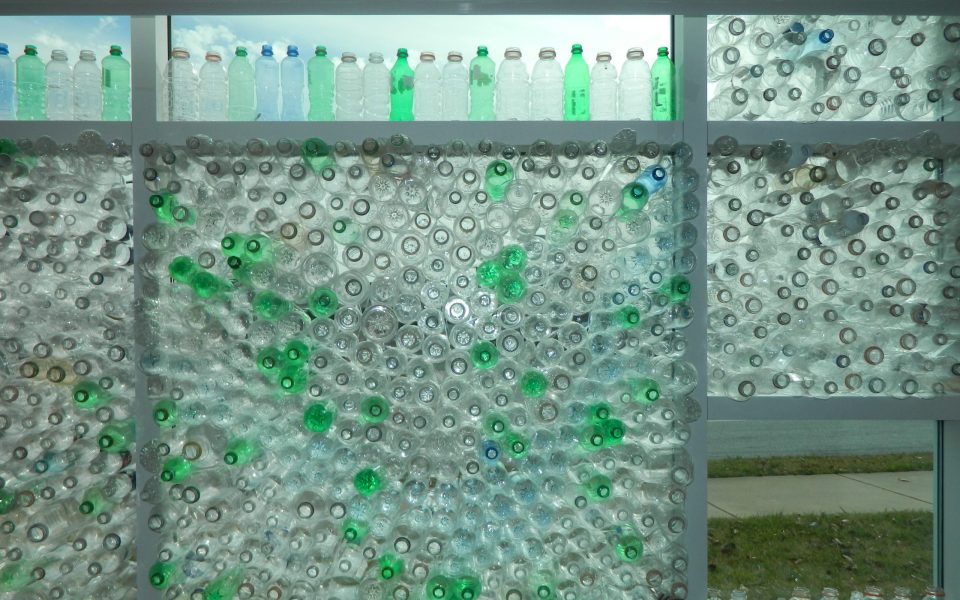by Kelly Fahey
Nothing quite puts the magnitude of our culture’s waste in perspective like a three-story waterfall made of plastic bottles, save for the images of the massive landfill located in Guatemala City.
Both were on display on Nov. 8 for Bryant Holsenbeck’s new installation at the High Point Public Library, Waste Matters: An Artful Matter of Waste.
Holsenbeck witnessed the perils of this landfill firsthand in Guatemala. After a sizable rainstorm caused landslides, the picturesque lake near where she was staying ended up filled with trash. She has since devoted her artistic career to changing the way people think about waste in the United States.
“My hope with this art is for people to see the quantity of their waste and think twice about where they throw their bottles,” Holsenbeck said.
She makes animals of discarded materials such as plastic bags and wire, rivers from bottlecaps and the poignant, plastic-bottle waterfall towering up to the third floor of the library.
Waste Matters also features a Christmas tree made of recycled materials and a wall of plastic bottles lining the window of the library’s café, all of which were made with the help of High Point University students and the Boys and Girls Club. The natural light shining through the bottles gives off an eerie greenish glow, reminding viewers of just how unnatural these receptacles are.
“Plastic is made to last forever and we only use it once.” Holsenbeck repeated this over and over again like it was her mantra, and she isn’t just talking the talk, she decided to practice what she preaches. Holsenbeck is currently living a year without using disposable plastic. She is detailing her experience in a blog titled “The Last Straw: A Reluctant Year Without Disposable Plastic.”
Her journey to becoming an environmental artist began with basket-making, but weaving baskets could only hold her attention for so long. Soon she began to concern herself with recyclable materials. She traveled abroad, to Guatemala and Ghana, to see what other country’s did with their trash. Recenlty, Her interest has focused on plastic water bottles, which was the medium for the majority of Waste Matters.
“We have good water in this country,” Holsenbeck said. “There are countries in Africa where you can’t drink the water.”
She held up her reusable water bottle as proof that there is no need for the plastic water bottles that are bought by the case at stores like Wal-Mart, used once and thrown away.
“Go stand in the middle of Wal-Mart and see if you can think of where the plastic isn’t,” Holsenbeck said during her reception.
The average American throws away four-and-a-half pounds of trash a day. This statistic comes to life when you see atrocities like the Great Pacific Ocean Garbage Patch, a floating landfill the size of Texas.
Holsenbeck doesn’t feel it is her place to point the finger. Her reception didn’t come off as preachy or accusatory; she realizes the merits of plastic.
“It’s not like I think [plastic] is a bad thing,” Holsenbeck said. “I just think we overuse it.”
Join the First Amendment Society, a membership that goes directly to funding TCB‘s newsroom.
We believe that reporting can save the world.
The TCB First Amendment Society recognizes the vital role of a free, unfettered press with a bundling of local experiences designed to build community, and unique engagements with our newsroom that will help you understand, and shape, local journalism’s critical role in uplifting the people in our cities.
All revenue goes directly into the newsroom as reporters’ salaries and freelance commissions.


Leave a Reply